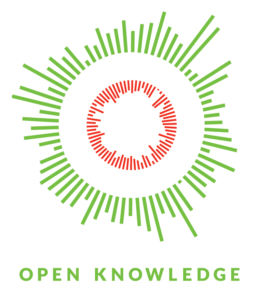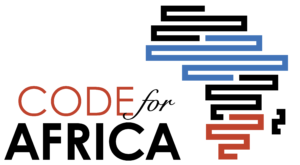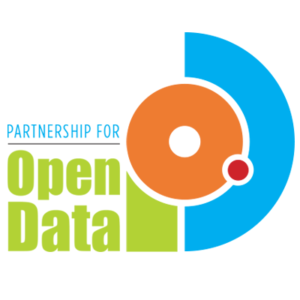(Application deadline: 15 December 2014)



Do you want to help us build African governments and societies that are more accountable and responsive to citizens?
We are looking for the best ideas for harnessing the power of digital technologies and open data, to improve the way that governments and citizens interact.
Code for Africa and Open Knowledge are offering three pilot Open Government Fellowships to give outstanding changemakers the skills, tools and resources necessary to kickstart open government initiatives in their countries.
The six-month fellowships are intended to empower pioneers who are already working in the open data or civic engagement communities, and are designed to augment their existing ‘day jobs’ rather than remove them from their organisations. Successful fellows will therefore only be expected to work part-time on their fellowship projects (which could include new initiatives at their ‘day jobs’), but will receive strategic and material support throughout their fellowship.
This support will include a modest $1,000 per month stipend, a $3,000 seed fund to kickstart projects, a travel budget to attend local and international events, access to workspace in Code for Africa affiliate civic technology labs across the continent, and technology support from Code for Africa developers and data analysts. Fellows will also be able to tap into Open Knowledge’s School of Data networks and resource kits, and its global network of specialist communities, as well as Code for Africa affiliate communities such as Hacks/Hackers.
The deadline for applications is 15 December 2014. The fellowships are scheduled to start in February 2015 and run until July 2015.
So, who qualifies for the fellowship? The initiative is a pilot, and is therefore casting the net as wide as possible. Applicants should:
- Currently be engaged in the open government and/or related communities . We are looking to support individuals already actively participating in the open government community
- Be able to point to examples of their work in the civic data or civic technology space, or work in open data or open government communities
- Understand the role of civil society and citizen based organisations in bringing about positive change through advocacy and campaigning
- Understand the role and importance of monitoring government commitments to open data as well as other open government policy related issues
- Have facilitation skills and enjoy community-building (both online and offline)
- Be eager to learn from and be connected with an international community of open government experts, advocates and campaigners
- Currently live and work in Africa. Due to limited resources and our desire to develop a focused and impactful pilot programme, we are limiting applications to those currently living and working in Africa. We hope to expand the programme to the rest of the world in 2015.
The fellowship will initially be limited to African countries where either Code for Africa or Open Knowledge have extensive resources or deep partnerships. Applicants should therefore be based in one of the following countries: Angola, Burkina Faso, Cameroon, Ghana, Kenya, Morocco, Mozambique, Mauritius, Namibia, Nigeria, Rwanda, South Africa, Senegal, Tunisia, Tanzania, and Uganda. We hope to expand the initiative to include additional countries later in 2015.
The selection committee will pay particular attention to applicants’ current engagement in the open government movement at local, national and/or international level. The committee will also be interested in applicants’ ideas around proposed strategic partnerships and pilot projects for their fellowships. Neither Code for Africa nor Open Knowledge are being prescriptive about the proposed focus or scope for projects, but will prefer projects that demonstrate clear visions with tangible outputs. This could include fellows working with a specific government department or agency to make a key dataset available. It could also include helping communities use available data, or organising a series of events addressing a specific topic or challenge citizens are currently facing.
Successful candidates will commit to work on their fellowship activities a minimum of six days a month, including attending online and offline training, organising events, and being an active member both Open Knowledge and Code for Africa communities.
While the pilot fellowships are limited to 16 countries initially, we are exploring ways to expand it to other regions. Get in touch if you would like to work with us to do so.
Convinced? Apply now to become a Open Government Fellow. The application is available here. If you are more comfortable submitting your application in French or Portuguese, you will find it in French here and in Portuguese here. The deadline is 15 December 2014 and the programme will start in February 2015.
Also check out the Frequently Asked Questions page for more information.
I participated in the just concluded Global Open data Index day hosted by M-Power. I hosted the First Taita Taveta Tech Expo, held at Taita Taveta University College in Taita Taveta County, Kenya.
I am definitely interested.
TechKenyans is a community enhanced platform that seeks to uplift the youth. Currently based at TTUC.
This is my proposed working group to hold events and engage with community.
It seem like a very interesting intiative that i will like to be part of.
We run an initiative dubbed ‘Kompyuta Mashinani’, swahili for Computers to the grassroots. Our goal is to equip communities with digital literacy skills as vital life skill in this day and age. Here is a short clip of the program: https://www.youtube.com/watch?v=8YWw30hoYMI.
We are interested to be part of your expansion plan.
Its a great initiative which i’d love to be part of. Keeping an eye on it
Oh gays with this i think will be the way to go we need this kind of network globally such that we can be heard and make governments account to the people they lead. I very much interested
I will equally love to be part of this.
I would like to be part of this training.There are lots of government projects in the communities in which the communities are not involved and end failing or mismanaged. I would like to hold events and engage the community over such projects.
I would like to be part of this training.There are lots of government projects in the communities in which the communities are not involved and end failing or mismanaged. I would like to hold events and engage the community over such projects.
Its a brilliant initiative which i would love to equally engage in.
Can a student apply 4 it,cus i will like to take part in d program
Let’s see how can the training can make my dear country benefit via its communities. Am interested please. God bless
Hi Harrison. The OpenGov Fellowships are just one of our civic technology programmes. You can also get training at one of our data bootcamps (here’s a link to the one that ran in Nairobi was week: http://bit.ly/dBnairobi), or you can join your local Hacks/Hackers chapter to find other people with similar interests for collaboration on civic technology projects (here’s a link to the Hacks/Hackers Africa community: http://bit.ly/HHAfrica). You should also keep an eye on the Code for Africa community, at: http://bit.ly/C4Africa
Hi Caleb. Kompyuta Mashinani sounds like a great initiative. You should hook up with the Hacks/Hackers Nairobi community, to look for synergies amongst folk there. The chapter has over 250 members. You can find them on this Google Group: http://bit.ly/HHnbo
Hi Stanley. We’re thrilled that you’re already active in the #OpenData space, and that you want to help champion open government outside of major cities. Please make sure that you formally apply via the application form. The link is above, in the blog post.
This is very interesting programme that I would like to be part of it. As an Investigative Journalist in Tanzania, I have encountered many challenges in data collection, challenges that face many journalists and even the public in most developing countries. But the few that I collected enabled me write stories that made an impact to the public, one of them earning me a journalism award in 2011 – Conflicts and Disaster Reporting award.
It’s really a credible initiative that will enable selected candidates to help build free open nations and societies premised on equality, rule of law, accountability and democracy. I am one of the many who would love to participant in the pilot project.
Hi Abdulyekeen! Yes, students are eligible. All you need to have is a great idea, and a commitment to building a dynamic community around that idea. Check the detailed criteria on the FAQ page.
Hey Justin, Sorry to bother you. I have formally applied for this application. But the problem is that I made some Spelling mistakes. I really want to be part of this but I’m afraid of being rejected because those mistakes. I wish you have something to say about this. thank you in advance Dear.
Hi Mohamed. The application form should allow you to edit your submission. If you can’t make it work, don’t stress: we understand that many people are applying in a 2nd or 3rd language. What really counts is the strength of your idea and your networks. Good luck!